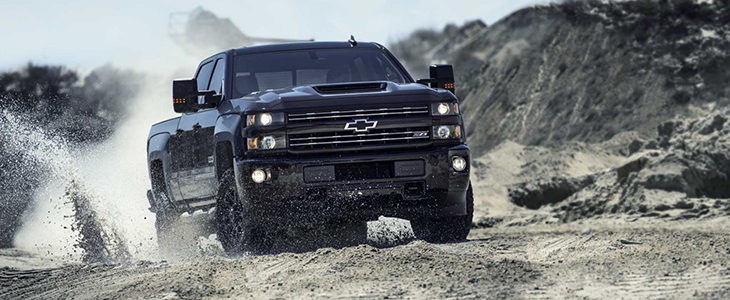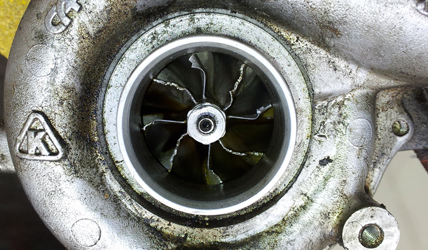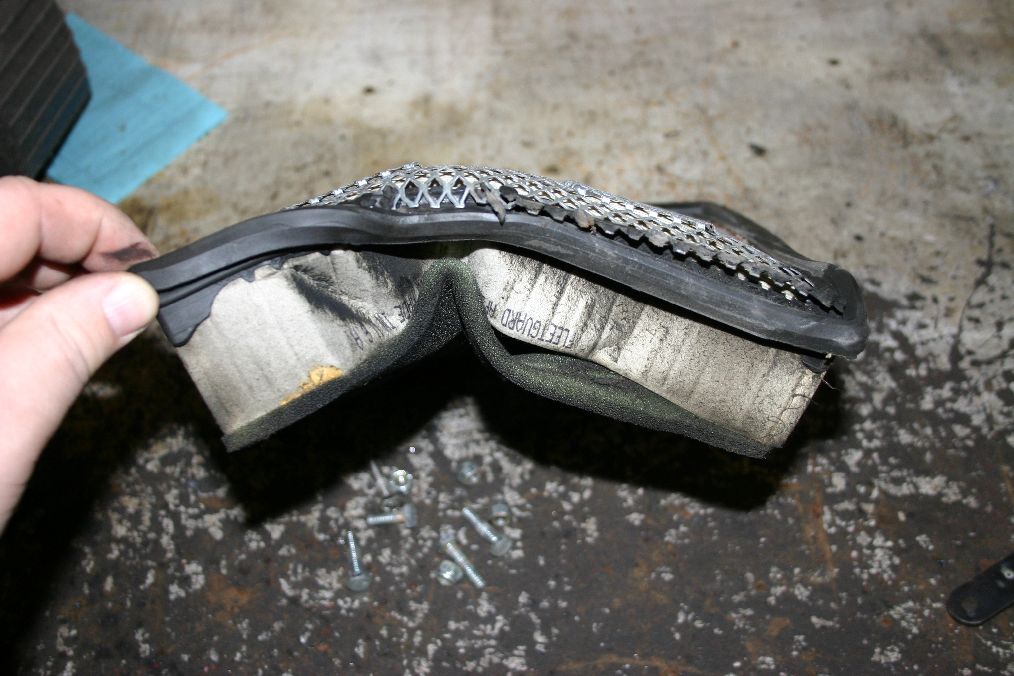
A Clean Engine Air Filter is Essential for the Optimal Performance of Turbodiesel Trucks
When a turbodiesel engine experiences power loss or turbo problems, the air-intake and filters will be some of the first components that professional installers will investigate. That fact highlights just how critical air filter maintenance is to keep a turbocharged diesel vehicle running right. What we want to talk about today, is one aspect of engine air filter neglect that doesn’t get much attention – the potential hazard for turbodiesel applications and turbodiesel trucks in particular.
Turbodiesel Trucks Keep On Truckin’
The passenger car market has been moving farther and farther away from diesel engine technology as the years go by – and that trend did not change in 2020, with nine different passenger car models scrapping their diesel powerplants in favor of gas-powered turbocharged engines. Unlike cars and small SUVs, the diesel truck segment continues on a solid growth trend. This is because diesel technology’s promise to deliver improved fuel economy and big torque bodes well for anyone hauling heavy cargo or doing any towing.
Turbochargers on Big Diesel Trucks Create Exaggerated CFM Rates
It takes a big engine to deliver that kind of power and the bigger the engine is the bigger the turbo usually is. The added size means a higher risk for turbocharger trouble if the engine air filter is neglected for too long. In these applications, the turbocharger creates very exaggerated airflow rates, which are measured in cubic feet per minute (CFM). So, for example, a four-cylinder, 1.9-liter naturally aspirated engine in a Honda Accord may develop a CFM airflow rate of 60-80 while a 6.7-liter turbodiesel Chevrolet Silverado may develop a CFM airflow rate of 950. Yes, 950! An airflow rate that high is like the thrust of a jet engine. The exaggerated CFM rate can impact a turbocharger in two ways, and both are related to the vacuum pressure that is created inside of the air intake duct when the compressor impeller spins up.
1. Oil Leaks Due to Damaged Turbocharger Seals
There are a variety of ways that turbocharger oil seals can go bad and begin to leak on both the compressor end and the turbine end. In this case, we’re mostly interested in what’s happening on the compressor end. Some causes may include the intake hose splitting, blockages to the air intake duct or hoses, blockages to the engine air filter, poorly sized turbocharger, incorrect pressure in the compressor, or a dirty engine air filter due to natural dirt buildup over time. That last one is important to remember when we consider the potential 950 CFM rate on a larger turbodiesel application. CFM rates this high will result in enough vacuum pressure to actually draw oil through the seals inside the turbocharger, damaging the seals and consequently, causing catastrophic damage to the turbocharger bearings.
2. Impeller Damage Due to Foreign Object Ingestion
In this unfortunate situation, if the air filter is slightly occluded the exaggerated CFM rate puts incredible pressure on the air filter, causing it to collapse into the air intake duct. When this happens the air filter is most likely to get stuck somewhere in the intake duct, allowing dust to freely flow into the turbo and engine. If this happens, you’ll know it right away because the turbo probably won’t give its usual distinctive sound when you hit the accelerator. The dust that gets by might not completely destroy the turbo or harm the engine, but it’s definitely not good for the notoriously fragile fins of the impeller.

In some instances, such a collapse can result in the air filter actually being ingested by the turbocharger. An object that large getting into the compressor housing would cause catastrophic damage to the impeller.

How to Prevent These Serious Problems
Preventing these serious problems from happening in a turbodiesel application is really simple – don’t neglect the engine air filter. There is a common misconception that’s been floating around for some time that says an engine air filter actually performs better as it ages. While technically true that the air filter is naturally more effective at stopping smaller particles as it progressively becomes more occluded, it’s also allowing significantly less clean air into the engine. With modern vehicles, this means that the ECU will need to make adjustments to the air/fuel ratio. And while this probably won’t impact the driving experience much, especially for naturally aspirated engines, it’s not the way the OE intended for the engine to be run. A clean engine air filter is completely capable of stopping any particles that could pose a threat to the engine or turbocharger while still allowing plenty of clean air to enter the combustion chamber for optimal performance.
In case you haven’t noticed, we’ve been especially interested in turbocharger technology lately because some of our most popular ECOGARD® products are incredibly important to the optimal performance and good health of these new applications, whether they be gas engines or diesel engines. You might remember that my article last month was focused on a couple of sure-fire ways that engine air filter neglect can ruin a turbocharger. As we’ve repeated over and over, turbocharger technology is only going to become more prevalent with automotive OEMs. DIYers and professional installers alike need to prepare to properly service these new vehicles with an understanding that the old rules no longer apply in the same ways that they used to. See the projected turbocharged VIO by 2025 data here.
Tags: Airflow, CFM, Diesel, Turbo, Turbocharged, Turbochargers, Turbodiesel
Categories: Air FiltersShare this entry